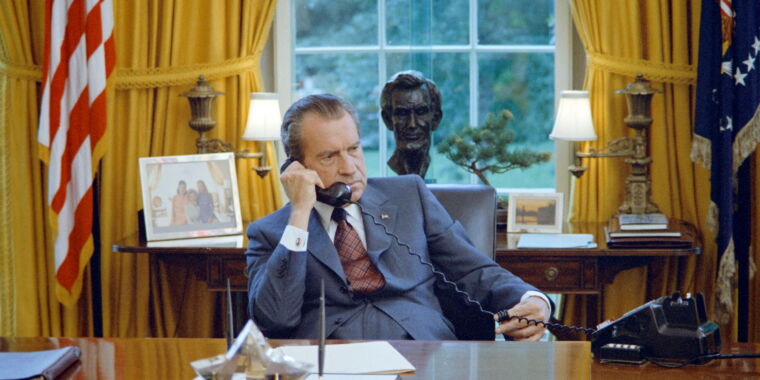Missed Opportunity: The Untold Story of Nixon’s Climate Change Research Proposal
In 1971, President Richard Nixon’s science advisers put forth a bold proposition that could have altered the course of history in the fight against climate change. The proposal, aimed at establishing a groundbreaking climate change research project, was recently uncovered by the National Security Archive. This initiative, if implemented, would have not only revolutionized our understanding of the Earth’s climate, but also potentially safeguarded humanity’s survival.
The ambitious plan outlined the creation of six global and 10 regional monitoring stations strategically located in remote areas to gather data on critical atmospheric factors such as carbon dioxide levels, solar radiation, and aerosols. The proposal envisioned a six-year program engaging five government agencies, with a peak funding of $23 million in 1974—equivalent to a staggering $172 million in today’s currency. The cutting-edge technology proposed in this project, ahead of its time, is still being utilized in carbon monitoring efforts over five decades later.
Although the proposal promised immense benefits, its fate remains shrouded in mystery. The National Security Archive’s researchers found no evidence of the plan’s execution or its eventual outcome. The lack of implementation underscores a missed opportunity that could have potentially altered the trajectory of climate change awareness and action.
A Second Life: The Legacy of Edward E. David Jr.
Interestingly, the spirit of the proposed climate monitoring project was resurrected in a different form through the actions of Edward E. David Jr., the head of Nixon’s White House Office of Science and Technology. Post his tenure in the administration, David assumed a role at Exxon, a prominent oil corporation, where he spearheaded a groundbreaking initiative. As president of the Exxon Research and Engineering Company from 1977 to 1986, David sanctioned a pioneering project involving one of the oil company’s tankers to collect atmospheric and oceanic carbon dioxide samples, commencing in 1979.
This research, disclosed by Inside Climate News in 2015, provided conclusive evidence linking fossil fuels to global warming. It also shed light on the oil industry’s knowledge of the damaging impact of its products, serving as pivotal evidence in ongoing lawsuits seeking accountability from the oil sector for climate-related damages.
The National Security Archive, supported by the Freedom of Information Act, stands as a beacon for historical document preservation. Housing a wealth of declassified government records, including those pertaining to national security and military affairs, the Archive’s latest endeavor focuses on compiling the intricate history of the U.S. government’s response to climate change. In a timely tribute to Earth Week, the Archive unveiled a comprehensive briefing book capturing climate change deliberations within the Nixon White House, underscoring the significance of historical context in addressing contemporary environmental challenges.
Image/Photo credit: source url





